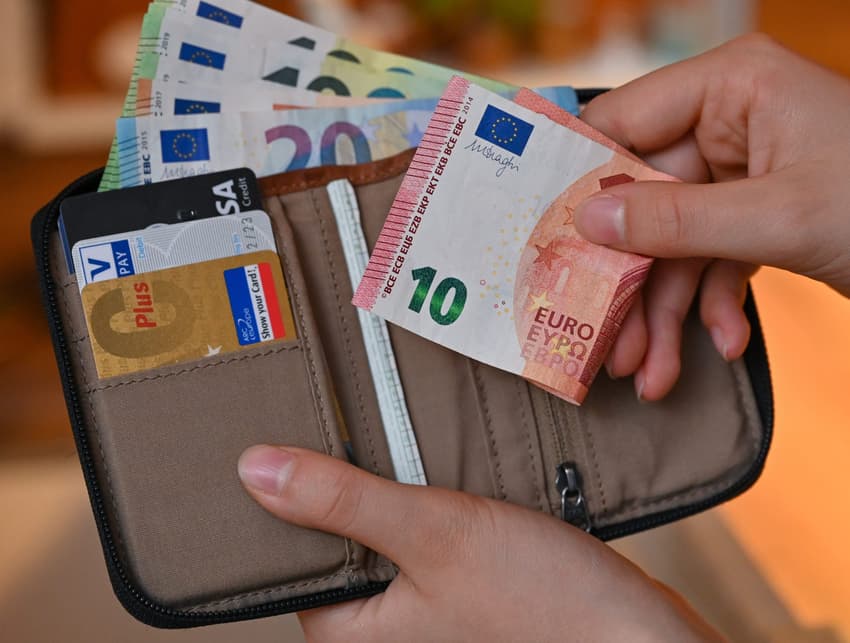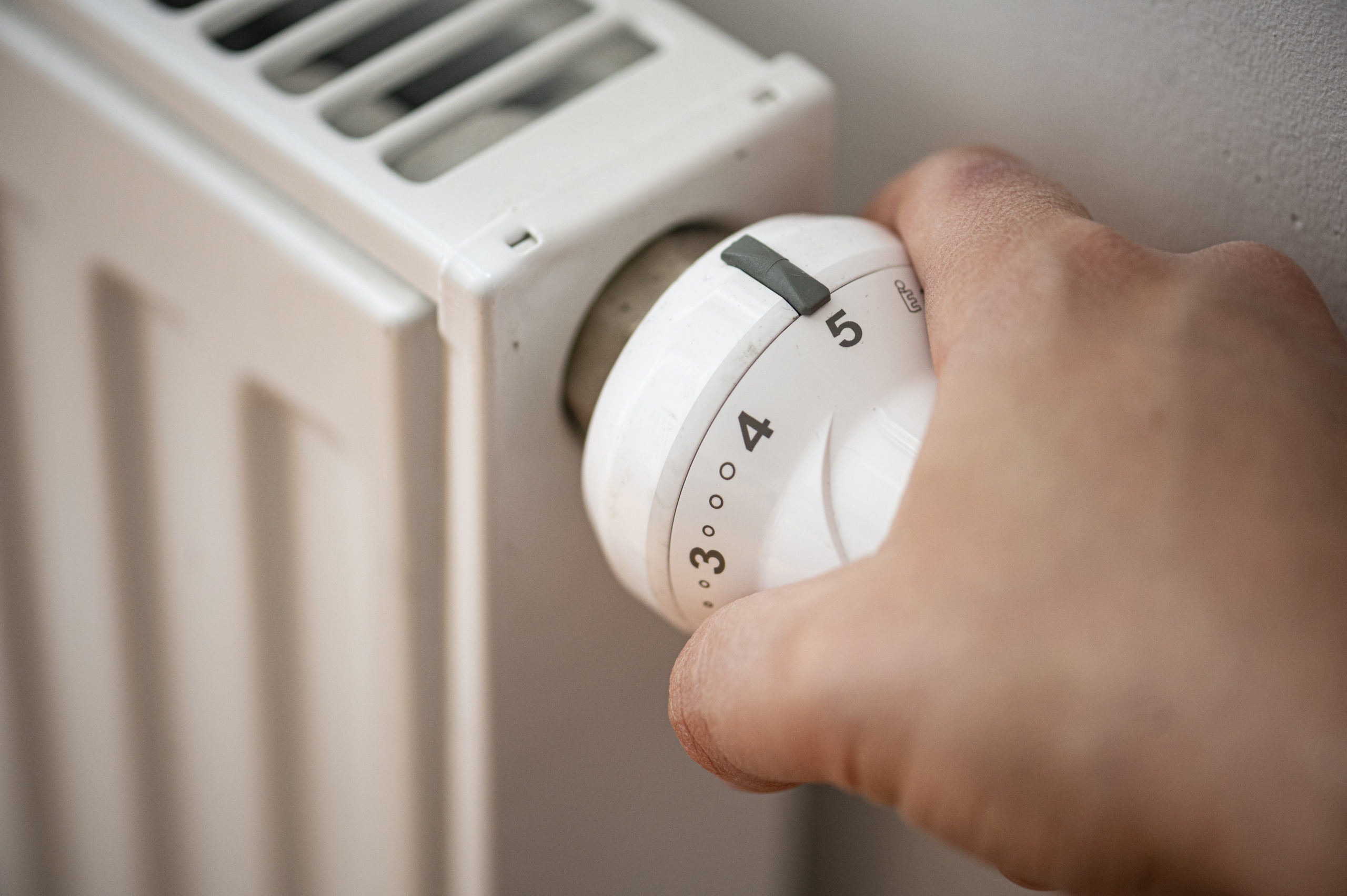The key dates to know for Germany's energy relief payouts

The government is set to roll out around €30 billion in relief to help struggling households with their energy bills this year. But with many people seeing the impact of the rising prices already, when will the changes come into force?
Russia's invasion of Ukraine has compounded an already volatile energy market and left many households in Germany wondering how they can cover their rising bills.
At the same time, the rising energy costs have had a knock-on effect on prices across the board, from supermarket goods to mobility.
In January and February, the government announced two packages of relief measures designed to offset some of this lost spending power.
On Wednesday, the cabinet signed off on the bill to introduce the measures, but this will still need to be passed in the Bundestag and Bundesrat sometime in May with the aim of introducing the first measures in June.
But there has been criticism of the fact that the impact of much of the financial support may not be felt for some time.
So, what help can families expect over the coming months - and what are they likely to have to wait for? Here's what you need to know.
June
June will see the introduction of two major mobility-focussed measures - the €9 monthly transport ticket and a tax cut on fuel - and potentially another relief measure aimed at taxpayers.
- €9 transport ticket: From June 1st, people will be able to get a monthly travel card for just €9 per month. If all goes to plan, the offer will apply all over Germany for the duration of summer, giving people the chance to enjoy budget public transport during the warmer months. So far, it looks like the measure is due to end in September, but the government is hoping it will help ease the burden of higher fuel costs and encourage a transition to greener transport - at least for the time being
- Fuel tax cut: For car owners, the government is slashing the energy tax which is normally levied on fuel from June 1st. If all of the savings are passed onto consumers, the price of petrol could go down by as much as 30 cents, and the price of diesel will be reduced by around 14 cents. This measure will also apply for a duration of three months
- €300 heating allowance: Thought this isn't set in stone yet, the Finance Ministry is hoping that a €300 energy allowance for taxpayers will be paid out in June on top of employee's salaries. Self-employed people, on the other hand, will either have to wait until their next advance tax payment or the submission of their tax return next year
READ ALSO: How will Germany’s €9 monthly travel ticket work?

A man turns the radiator on. Photo: picture alliance/dpa | Fabian Sommer
July
- Adults who receive social benefits, Hartz IV or social support for asylum seekers will receive two payments of €100 to support them with their energy bills, and an additional €20 per month for each of their children from July
- The scrapping of the Renewable Energy Act (EEG) levy - a green tax levied on energy bills - has been brought forward to July 1st, 2022. The EEG levy was already halved on January 1st this year, but still costs households around 3.72 cents per kilowatt hour of energy, which equates to around €74 per year for a household using 2,000 kilowatt hours of electricity. The levy will end completely in summer
READ ALSO: Will freelancers benefit from Germany’s €300 energy allowance?
Late 2022:
- Climate money: The traffic-light coalition wants to return state funds that have been raised through the CO2 back to the people and has set a deadline of the end of this year to come up with a way to calculate payments via the tax ID. It's unlikely that the payments will actually start this year, but by 2023 we should know more about how this would work
- Heating allowance for benefits claimants: Single households who receive housing benefit should get €270 paid on top of their usual welfare payments, while couples will get €350, plus €35 for each additional family member. This may not land in people's bank accounts for a while though, with the end of 2022 looking like a tentative deadline
- Kinderbonus: Parents can expect to get a "child bonus" payment of €100 per child, which will be paid out by the Familienkasse (family insurance funds) and offset against the child allowance in the same way as in 2020 and 2021 during the Covid crisis. It's unclear when this will be paid out, but it's likely to be some time this year
From 2023:
A number of the traffic-light coalition's measures will only take effect in the form of a rebate in the 2022 tax return, meaning it will be at least a few months into next year before people see an impact on their wallet - depending on when they submit their tax return.
These include:
- Special expenses: The employee lump sum (Arbeitnehmer-Pauschale) - an assumed amount of work-related expenses that the tax office writes off each year without requiring proof - has been retrospectively increased to €1,200 from €1,000
- Tax-free allowance: The basic tax-free allowance will increase by €363 to €10,347 to compensate for inflation
- Commuter allowance: People who travel more than 20km to work will get to write off a higher amount of travel expenses in their tax return next year. From the 21st kilometre onwards, they can write off 38 cents per kilometre as opposed to 35 cents
READ ALSO: Everything you need to know about your German tax return in 2022
Comments
See Also
Russia's invasion of Ukraine has compounded an already volatile energy market and left many households in Germany wondering how they can cover their rising bills.
At the same time, the rising energy costs have had a knock-on effect on prices across the board, from supermarket goods to mobility.
In January and February, the government announced two packages of relief measures designed to offset some of this lost spending power.
On Wednesday, the cabinet signed off on the bill to introduce the measures, but this will still need to be passed in the Bundestag and Bundesrat sometime in May with the aim of introducing the first measures in June.
But there has been criticism of the fact that the impact of much of the financial support may not be felt for some time.
So, what help can families expect over the coming months - and what are they likely to have to wait for? Here's what you need to know.
June
June will see the introduction of two major mobility-focussed measures - the €9 monthly transport ticket and a tax cut on fuel - and potentially another relief measure aimed at taxpayers.
- €9 transport ticket: From June 1st, people will be able to get a monthly travel card for just €9 per month. If all goes to plan, the offer will apply all over Germany for the duration of summer, giving people the chance to enjoy budget public transport during the warmer months. So far, it looks like the measure is due to end in September, but the government is hoping it will help ease the burden of higher fuel costs and encourage a transition to greener transport - at least for the time being
- Fuel tax cut: For car owners, the government is slashing the energy tax which is normally levied on fuel from June 1st. If all of the savings are passed onto consumers, the price of petrol could go down by as much as 30 cents, and the price of diesel will be reduced by around 14 cents. This measure will also apply for a duration of three months
- €300 heating allowance: Thought this isn't set in stone yet, the Finance Ministry is hoping that a €300 energy allowance for taxpayers will be paid out in June on top of employee's salaries. Self-employed people, on the other hand, will either have to wait until their next advance tax payment or the submission of their tax return next year
READ ALSO: How will Germany’s €9 monthly travel ticket work?

July
- Adults who receive social benefits, Hartz IV or social support for asylum seekers will receive two payments of €100 to support them with their energy bills, and an additional €20 per month for each of their children from July
- The scrapping of the Renewable Energy Act (EEG) levy - a green tax levied on energy bills - has been brought forward to July 1st, 2022. The EEG levy was already halved on January 1st this year, but still costs households around 3.72 cents per kilowatt hour of energy, which equates to around €74 per year for a household using 2,000 kilowatt hours of electricity. The levy will end completely in summer
READ ALSO: Will freelancers benefit from Germany’s €300 energy allowance?
Late 2022:
- Climate money: The traffic-light coalition wants to return state funds that have been raised through the CO2 back to the people and has set a deadline of the end of this year to come up with a way to calculate payments via the tax ID. It's unlikely that the payments will actually start this year, but by 2023 we should know more about how this would work
- Heating allowance for benefits claimants: Single households who receive housing benefit should get €270 paid on top of their usual welfare payments, while couples will get €350, plus €35 for each additional family member. This may not land in people's bank accounts for a while though, with the end of 2022 looking like a tentative deadline
- Kinderbonus: Parents can expect to get a "child bonus" payment of €100 per child, which will be paid out by the Familienkasse (family insurance funds) and offset against the child allowance in the same way as in 2020 and 2021 during the Covid crisis. It's unclear when this will be paid out, but it's likely to be some time this year
From 2023:
A number of the traffic-light coalition's measures will only take effect in the form of a rebate in the 2022 tax return, meaning it will be at least a few months into next year before people see an impact on their wallet - depending on when they submit their tax return.
These include:
- Special expenses: The employee lump sum (Arbeitnehmer-Pauschale) - an assumed amount of work-related expenses that the tax office writes off each year without requiring proof - has been retrospectively increased to €1,200 from €1,000
- Tax-free allowance: The basic tax-free allowance will increase by €363 to €10,347 to compensate for inflation
- Commuter allowance: People who travel more than 20km to work will get to write off a higher amount of travel expenses in their tax return next year. From the 21st kilometre onwards, they can write off 38 cents per kilometre as opposed to 35 cents
READ ALSO: Everything you need to know about your German tax return in 2022
Join the conversation in our comments section below. Share your own views and experience and if you have a question or suggestion for our journalists then email us at [email protected].
Please keep comments civil, constructive and on topic – and make sure to read our terms of use before getting involved.
Please log in here to leave a comment.